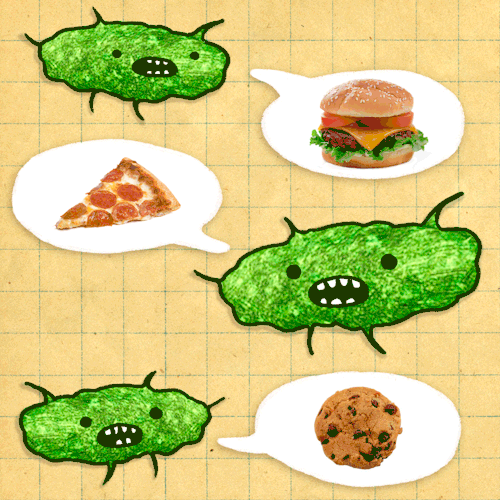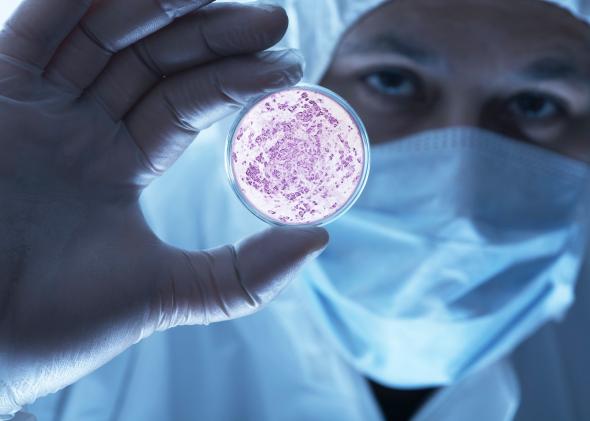
It sounds like science fiction, but it seems that bacteria within us — which outnumber our own cells about 100-fold — may very well be affecting both our cravings and moods to get us to eat what they want, and often are driving us toward obesity.
In an article published this week in the journal BioEssays, researchers from UC San Francisco, Arizona State University and University of New Mexico concluded from a review of the recent scientific literature that microbes influence human eating behavior and dietary choices to favor consumption of the particular nutrients they grow best on, rather than simply passively living off whatever nutrients we choose to send their way.
Bacterial species vary in the nutrients they need. Some prefer fat, and others sugar, for instance. But they not only vie with each other for food and to retain a niche within their ecosystem — our digestive tracts — they also often have different aims than we do when it comes to our own actions

